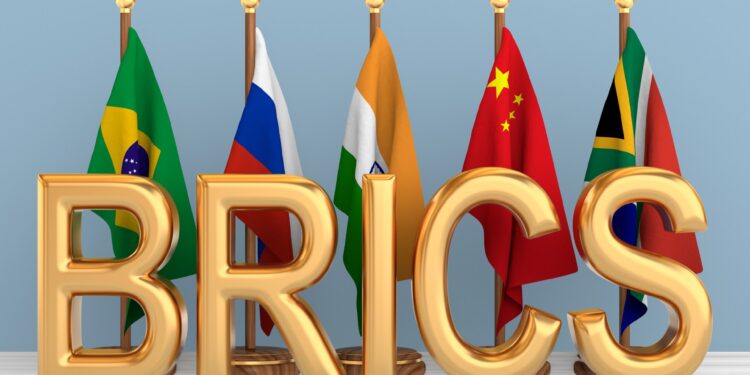The Chairman of the Russian Federation Council, Valentina Matviyenko, suggested on Friday the possibility of creating a multilateral digital payment and financial settlement platform within the framework of the BRICS group.
“The Russian Ministry of Finance and the Central Bank of Russia, in cooperation with partners in the group, are preparing a report for the leaders of the BRICS countries on a project to improve the international monetary and financial system, which will contain a list of initiatives and recommendations on the project,” Matvienko said in an interview with the Russian Sputnik Agency.
“The outcome of the report may be the creation of a multilateral digital payment and financial settlement platform, which will help bring together the financial markets of BRICS member states and increase the volume of mutual trade,” she added.
She continued: “In this case, digital currencies of the central banks of the group’s countries can be used, and their price will be linked to the value of national currencies.”
“The digital settlement and payment platform will be decentralized, where none of the participants will be able to restrict the actions of others,” Matvienko explained.
“If the initiative proposed by Russia is approved, the BRICS countries will be asked to coordinate legislative work on it,” she said.
Russian Deputy Foreign Minister Alexander Pankin revealed that work is underway on the idea of moving towards a unified currency that can be used in the BRICS countries, noting that there is also a trend towards using more national currencies, including digital currencies, such as the digital ruble.
Facts about BRICS
- BRICS is a bloc founded in 2006, and includes China, Brazil, Russia, India, and South Africa, before Egypt, Ethiopia, Iran, and the UAE join it in early 2024.
- The BRICS countries together account for about 40% of the world’s land area.
- More than 40% of the world’s population lives there.
- It includes the 5 largest and most densely populated countries in the world.
- It aims to become a global economic power capable of competing with the G7, which accounts for 60% of global wealth.



